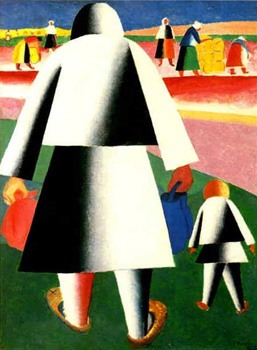STRALUNANTE
 Veering here toward the end of the introduction to a decade of translation, a commitment happily nowhere near finita, finished, at least in the slangy figurative sense.
Veering here toward the end of the introduction to a decade of translation, a commitment happily nowhere near finita, finished, at least in the slangy figurative sense.
Sporadic flights between bio-bibliographical tinkerings back to Impromptu, Amelia Rosselli's final flood of a poemetto, composed in the dark period following the "delitto Moro" committed by the Red Brigades. A sort of Primavera in a jardinière, overseen by a plainclothes cop and the monotony of confraternity brothers compared to stalks of wheat, who obscure the laid-out body of the poet; she looks up recalling a youth in Larchmont hosted by the anti-Fascist Mazzini Society and the Quakers through the "childhood's masonry of these verses." A work composed in a single sitting and later chanted by the poet/musician/musicologist nearly as if it were Gregorian, sung, in shocking contrast with the filth, terror, & currency of the scenes set. "[Q]uanto è salmodiante, qui," notes Marilena.
* * *
[youtube vSwjx-s8DQ8]
[youtube xJdE6OxWZr4]
* * *
Long talk with my comrade Andrea Raos over Rosselli's word "stralunante," a variant of "stralunato," or struck by the moon so as to become goggle-eyed, dazed.
Moonstruck conjures images of Cher and is a little too romantically tinged. "Thunderstruck" is more like it. Yet thunder takes on masculine associations (Zeus and the like) I'd like to avoid. And both terms neglect the perpetual striking implied by the "-ante."
Keeping it literal. Thank you Anne Carson.
...rotativa nella
notte specchiata nel lucido del
vetro che copre le vostre indifferenze
alla mia stralunante morte.
*
...rotative in the
night mirrored in the luster of the
glass that covers your indifference
to my moonstriking death.